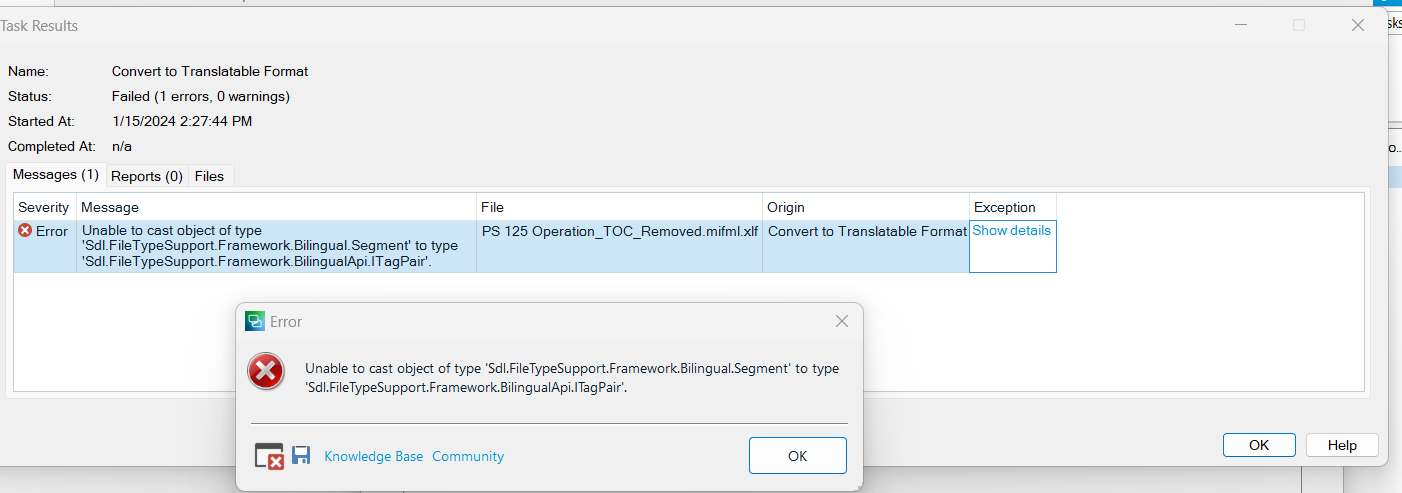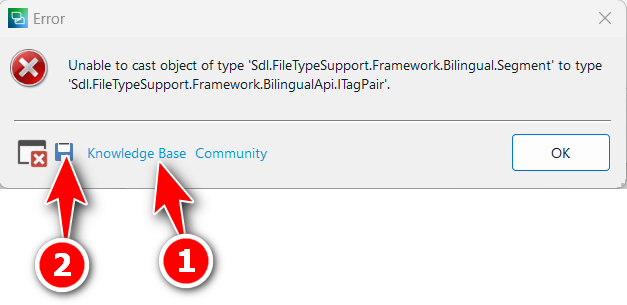Unable to cast object of type 'Sdl.FileTypeSupport.Framework.Bilingual.Segment' to type 'Sdl.FileTypeSupport.Framework.BilingualApi.ITagPair'. File will not analyze and reports a error. This is for a Frame Maker Structured file that was exported to XLIFF 2.0.
Generated Image Alt-Text
[edited by: Trados AI at 1:23 PM (GMT 0) on 29 Feb 2024]


 Translate
Translate



